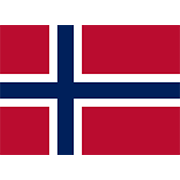Fiscal subject related
The Executive Director of Norges Bank delivered a speech at the Payments and Digitalization Conference on November 7, 2024, focused on responsible innovation in Norway's payment system.
The themes discussed at the Payments and Digitalization Conference are as follows:
- Responsible Innovation:
The need for a gentler approach to innovation in payment systems was emphasized, contrasting it with the "move fast and break things" mentality. Trust and acceptance are crucial for the functionality of money.
- Three Parameters for Payment Systems:
- Availability and Efficiency: Payments should be user-friendly, quick, and inexpensive.
- Security and Contingency Planning: The system must be resilient against disruptions and fraud.
- Inclusion: Accessibility for all users is essential to maintaining trust in the payment system.
- Current Initiatives:
Norges Bank is exploring participation in the Eurosystem’s TIPS service for instant payments, which would allow real-time transactions 24/7. The bank is also adopting the ISO 20022 messaging standard, enhancing communication across financial infrastructures and improving automation in payment processing.
- Central Bank Digital Currency (CBDC):
Research into CBDC is ongoing to assess its potential benefits for secure payments in modern contexts. The bank is cautious about rushing into implementation given the current efficiency of Norway's payment system.
- Tokenisation:
Tokenization represents assets digitally, allowing automated transactions through smart contracts. While it offers advantages like reduced risk and new business models, it also introduces regulatory challenges.
- Security Enhancements:
Increased complexity and cyber threats necessitate stronger security measures. Norges Bank is collaborating with industry stakeholders to conduct rigorous testing of critical functions to strengthen resilience against cyberattacks.
- Payment System Accessibility:
A government-appointed Payment Commission will report on ensuring simple and secure payments for everyone, including maintaining cash accessibility amid declining bank branch services.
- Challenges Ahead:
The speech noted potential threats to the "singleness of money," such as declining cash usage and the rise of cryptocurrencies, which could undermine public trust in traditional forms of money.
The Executive Director of Norges Bank’s address highlighted that while Norway's payment system is currently efficient, ongoing innovation, security enhancements, and inclusivity are vital to adapt to future challenges. The central bank remains committed to fostering a resilient payment ecosystem that meets the needs of all users while maintaining trust in monetary systems.
Other news from Norway
Norwegian Parliament Sets VAT Rates for 2026
 Norway
Author: Ivana Picajkić
Norway
Author: Ivana Picajkić
The Norwegian Parliament (Storting) has adopted its annual VAT resolution for the 2026 budget year, confirming that the general VAT rate will remain at 25% from 1 January 2026, alongside existing reduced rates. Read more
Subscribe to get access to the latest news, documents, webinars and educations.
Already subscriber? Login


Reminder: Norway Moves Toward Mandatory E-Invoicing and Digital Bookkeeping
 Norway
Author: Ivana Picajkić
Norway
Author: Ivana Picajkić
Norway has launched a consultation on introducing mandatory digital bookkeeping and B2B e-invoicing, led by the Norwegian Ministry of Finance, with the aim of modernising accounting, reducing administrative burdens, and improving transaction traceability. Under the proposal, businesses would be required to send e-invoices from 1 January 2028 and receive e-invoices and maintain digital records from... Read more



Norway: Businesses Must Create Daily Z Reports, Printing Can Follow Later
 Norway
Author: Ivana Picajkić
Norway
Author: Ivana Picajkić
Under the new bookkeeping rules, businesses using cash register systems must prepare a daily cash settlement. Read more
Subscribe to get access to the latest news, documents, webinars and educations.
Already subscriber? Login


New document was uploaded: EV-chargers from the Fiscalization Perspective in Norway
 Norway
Author: Ivana Picajkić
Norway
Author: Ivana Picajkić
The purpose of this document is to explain rules regarding the treatment of EV chargers for electric vehicles in Norway in relation to fiscalization. The document will explain whether they are subjects of fiscalization or not, whether there are some special rules and regulations, or if there are some special rules Read more
Subscribe to get access to the latest news, documents, webinars and educations.
Already subscriber? Login


Norway: Stored Receipts Must Be Closed Before Day-End
 Norway
Author: Ivana Picajkić
Norway
Author: Ivana Picajkić
The Norwegian Tax Administration mandates that businesses finalize all sales before issuing a daily Z report. Read more
Subscribe to get access to the latest news, documents, webinars and educations.
Already subscriber? Login


Reminder: Norway’s Strict Rules on Invoices
 Norway
Author: Ivana Picajkić
Norway
Author: Ivana Picajkić
The Norwegian Tax Administration has reiterated that invoice numbers must not be altered and may only be generated through certified invoicing software or pre-printed forms bearing the seller’s enterprise details. Read more
Subscribe to get access to the latest news, documents, webinars and educations.
Already subscriber? Login


Norway: Bergen seeks permission for Sunday shopping
 Norway
Author: Ivana Picajkić
Norway
Author: Ivana Picajkić
Bergen and Oslo are seeking national approval to allow Sunday shopping, aiming to meet tourist demand while challenging Norway’s tradition of keeping shops closed on Sundays Bergen’s city council has voted to apply for national recognition as a “typical tourist destination.” If approved, this would allow shops in certain parts of the city to open on Sundays. Oslo has made the sa... Read more


